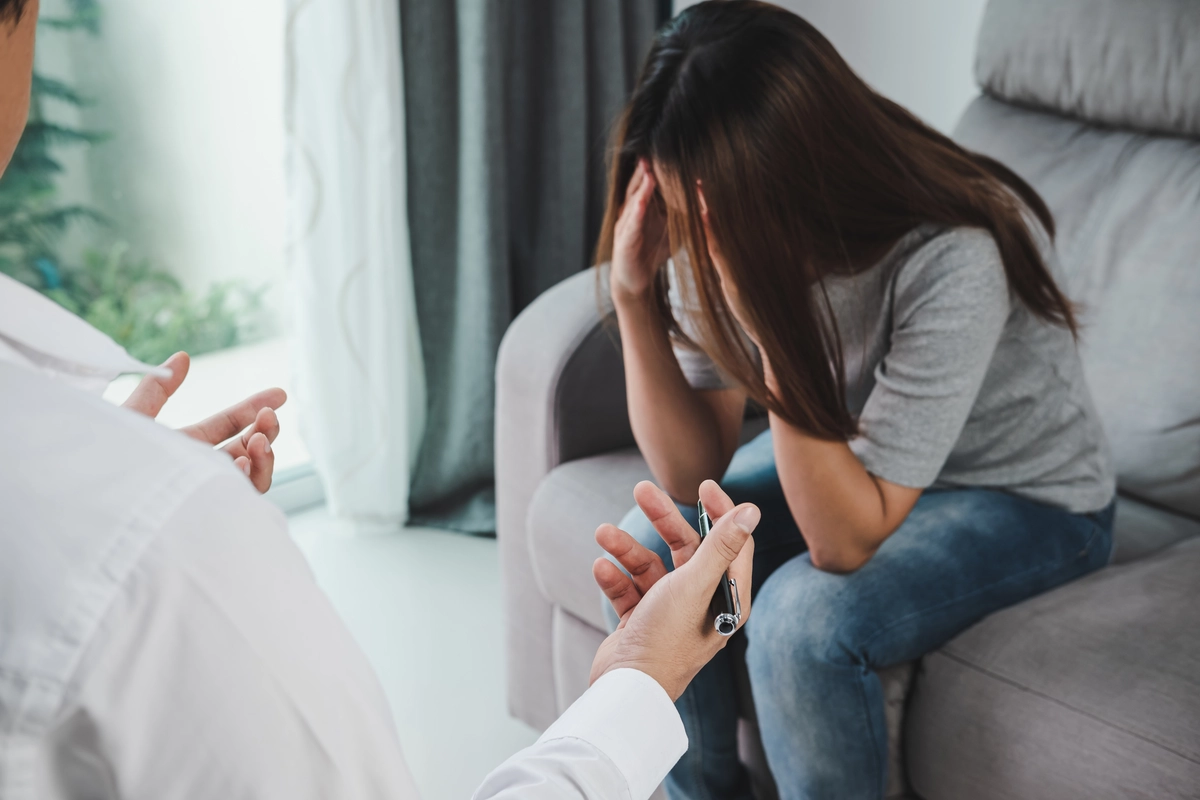24/7 Helpline:
(866) 899-221924/7 Helpline:
(866) 899-2219
Learn more about PTSD Rehab centers in Livonia
PTSD Rehab in Other Cities

Other Insurance Options
Beacon

Humana

Horizon Healthcare Service

State Farm

United Health Care

Cigna

GEHA

Regence

Meritain

Health Choice

Group Health Incorporated

Providence

Ambetter

Evernorth

UMR

Private insurance

CareSource

UnitedHealth Group

Multiplan

Amerigroup

Saint Mary Mercy Hospital – Department of Behavioral Medicine
Saint Mary Mercy Hospital – Department of Behavioral Medicine is a private rehab located in Livonia,...

Saint Mary Mercy Hospital – Behavioral Health Unit
Saint Mary Mercy Hospital – Behavioral Health Unit is a private rehab located in Livonia, Michigan. ...

Oakland Psychological Clinic
Oakland Psychological Clinic is a private rehab located in Livonia, Michigan. Oakland Psychological ...

Branches Counseling
Branches Counseling specializes in the treatment of mental health disorders and substance abuse by p...

Hegira Health – Community Outreach for Psychiatric Emergencies
Hegira Program - Community Outreach for Psychiatric Emergencies is located in Livonia, Michigan. Heg...

Hegira Health – Livonia Counseling
Hegira Health – Livonia Counseling is a private rehab located in Livonia, Michigan. Hegira Health – ...

Hegira Health – Livonia Counseling Center
Hegira Programs - Livonia Counseling Center is located at the corner of Schoolcraft and Newburgh Roa...

Eastwood Clinics
Eastwood Clinics is a non-profit rehab located in Livonia, Michigan. Eastwood Clinics specializes in...

Abundant Life Christian Counseling
Abundant Life Christian Counseling is an outpatient rehab located in Livonia, MI. Abundant Life Chri...






New Oakland Family Centers
New Oakland Family Centers is a drug and alcohol rehab center located in Livonia, MI. They provide o...

Center of Behavioral Therpy
Center of Behavioral Therpy is a private rehab located in Livonia, Michigan. Center of Behavioral Th...

University Psychiatric Center – Substance Abuse
University Psychiatric Center – Substance Abuse is a private rehab located in Livonia, Michigan. Uni...

Treatment Works
Treatment Works is a private rehab located in Livonia, Michigan. Treatment Works specializes in the ...

BROE Rehabilitation Services
BROE Rehabilitation Services is a private rehab located in Livonia, Michigan. BROE Rehabilitation Se...

Alcoholics For Christ – Grace Christian Fellowship
Alcoholics For Christ - Grace Christian Fellowship is located in Livonia, Michigan. Alcoholics For C...
